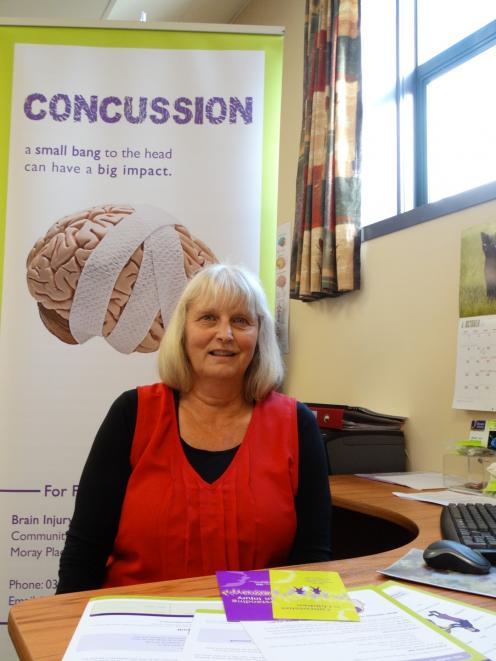
After a four-month "nightmare'', a Dunedin mother is relieved to have finally discovered the cause of her teenage son's problems - concussion.
Donna [surname withheld] told The Star the nightmare began in June, when her son was the victim of a serious assault that left him with bruises on his face and body and "eggs all over his head''.
"It was a hugely traumatic experience for him and for the rest of the family - we spent days dealing with the police, victim support, and a raft of other organisations,'' Donna said.
While medical staff were concerned about the possibility of back injury or internal injuries, no mention was made of the likelihood of brain injury, she said.
"No-one mentioned the possibility of concussion at the time, even though my son had been given multiple bashes to the head.''
It was only in the following days, weeks and months that the effect on her son became apparent, Donna said.
The usually bright, busy, high-achieving teenager underwent a change in personality, becoming morose, sleeping a lot and suffering crippling headaches.
"He was unable to cope with going to school, and he became much more prone to anger,'' she said.
At this time, he was not referred to ACC for concussion assessment, instead being labelled as experiencing psychological issues.
"I really wasn't comfortable with the label that had been put on to him - it didn't feel right to me.
"And the effect on him was terrible - he was so lost and frustrated.
"It was a real blow to his confidence and self-esteem.''
Donna was relieved when, at the suggestion of a knowledgeable police officer, she connected with Brain Injury Association Otago branch liaison officers Sue Whyte and Cathy Matthews.
At their suggestion, the family's GP referred the teenager to be assessed for concussion - which returned a positive result.
"Fortunately, we have been able to get a team together to work with him, which has been very helpful,'' Ms Whyte said.
The diagnosis has allowed a plan to be put in place to help the teenager to overcome the effects of his concussion and work towards the goal of returning to school next year.
"It has been a huge help to my son - he now understands what is happening to him, which makes it so much easier to deal with,'' Donna said.
"And finally people are listening to him. Taking it step by step and with the right rehabilitation, we are hopeful that he can work towards a bright future again.''
Mrs Matthews said many people were enormously relieved when they realised that their problems were due to a physical injury in the brain.
"People come in and they think they are going crazy - so understanding what the real problem is can help to put it all into perspective,'' she said.
Mrs Matthews said BIA Otago had experienced a 32% increase in referrals last year (60% of them self-referrals), and was on track for a similar increase this year.
In an effort to help families, schools and sports groups to deal with concussion in children and young people, BIA Otago is creating resources for distribution.
It is also setting up a support group for parents of children with a brain injury, which will meet at 10am on October 31 at Community House, 283 Moray Pl. To register, phone 471-6156, text 022 472-4080, or email sue.whyte@brain-injury.org.nz.
BRENDA.HARWOOD @thestar.co.nz
Comments
Im sincerely glad your boy has found reassurance in an early diagnosis.
I went undiagnosed for 18 months and then another four years after ACC had ignored earlier pleas from their specialists to consider Post Concussion syndrome. It is so important to have symptoms dealt with as early as possible....if left untreated the consequences can be significant.
I went from a young teenager with years ahead of me in a good career and relationship, to absolute zero and several years of self-harm and suicidal ideation. Twenty years now on WINZ and still fighting ACC all because of the awareness 20 years ago was poor in New Zealand
A Heartfelt story....am very pleased this young chap has had early intervention, as the consequences can be significant if untreated













